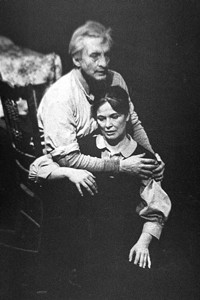1) subject desire


主体欲望
1.
Based on the existentialism,the paper explores the overall transform of China contemporary literature at the early 90s of the twentieth century and regards the shift of the narration of the subject desire as the inner driving power and the essential representation and thus reveals the true significance of this literary transform.
从存在论意义上着力探讨20世纪90年代初中国当代文学发展历程上这一次全面而深刻的大转型,并以主体欲望叙述重心的转换作为文学转型的内在驱动力和本质性表征,充分揭示了这次文学大转型的真正内核,从一个特定的视角为中国文学转型期的文化思考提供现实内容和理论依据。
2) subject of desire


欲望主体
1.
The Dialectic Relationship between Time and Subject of Desire in Lolita;


论《洛丽塔》中时间与欲望主体的辩证
5) body desire


身体欲望
1.
Under the banner of consumerism not only pursuing material desire and enjoyment have been legal,but chasing the delight of body desire has also become a kind of fashion.
在消费主义的旗帜下,不仅追求物质性欲望享受被披上了合法的外衣,而且追逐身体欲望的快感也成为了一种时尚。
6) the medium of desire


欲望介体
1.
Moreover, Shanghai, the background city where the narration is set, serves as the medium of desire, which is not only the medium for the writer to convert his subjective ideas into novels but also the representative historical scene for the functioning of revolutio.
蒋光慈在其前期革命小说创作中,实际上已经阐明了革命及其叙事的源起,设定了后期小说中革命者的主要内质,缘此不断地衍生出相关的主题、模式和人物,而叙述中的背景城市——上海,则被作为欲望介体,它不但是作者将主体观念转化为小说文本的中介,也是向世人展示特定时期内革命理念发生作用的表征性历史场景。
补充资料:《榆树下的欲望》
| 《榆树下的欲望》 Desir Under theElms E.奥尼乐的剧作。3幕悲剧,1924年首演。写农场主卡伯特为了农场所有权同儿子埃本和妻子爱碧之间发生的三角纠纷。前妻所生的埃本对继承农场抱有希望,76岁高龄的父亲又娶了年轻美貌的爱碧做第三任妻子。爱碧嫁给行将就木的老头,就是为了这份遗产,但是她跟年迈的卡伯特生不出孩子,继承权眼看要落空,于是引诱埃本同她发生关系,并生下了儿子。在利用、引诱埃本的过程中,她对埃本产生了真正的爱情。而埃本一直认为爱碧对他并无感情,只是为了生个继承人夺取农场。爱碧百般表白也不能证明自己的真心,于是忍痛杀死了亲生婴儿。她与埃本的隔阂消除了,但等待着他们的却是法律的制裁。 发生在这个家庭中的悲剧向人们揭示出,在金钱占统治地位的社会里,人的自然的情感与本性是如何被压抑与扭曲的,对财产的欲望使父子、母子、夫妻与兄弟之间尔虞我诈,虎视眈眈,一个个贪婪、狡诈、邪恶、虚伪。作者也写了人性中美好的一面,当爱情的火花迸发而出,冲破对金钱的占有欲时,他们会变得真诚、善良,为了得到一份真情而奋不顾身地追求。但是这种追求所表现出的疯狂依然造成了毁灭,这正是悲剧性所在。
|
说明:补充资料仅用于学习参考,请勿用于其它任何用途。
参考词条
